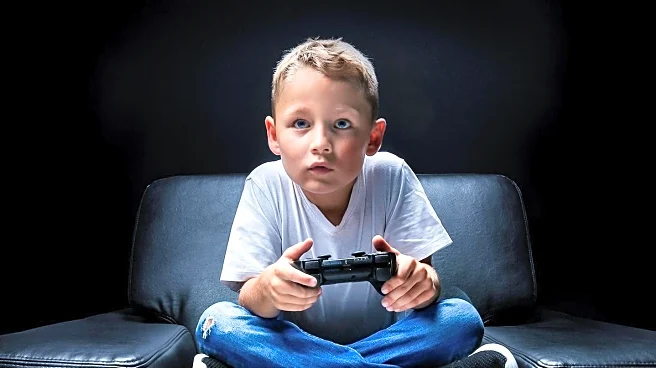What is the story about?
What's Happening?
A study conducted by Hong Kong researchers has identified a link between binge gaming and mental health issues among young people. Surveying 2,592 schoolchildren and teenagers, the study found that 31% of participants engaged in binge gaming, defined as playing for five or more hours consecutively. This behavior was associated with increased instances of depression, anxiety, stress, and poor sleep, particularly among boys. The study suggests that binge gaming may be an initial phase in the progression of internet gaming disorder and other severe health issues.
Why It's Important?
The study highlights the growing concern over the impact of prolonged gaming on mental health, particularly among young people. With video gaming being a prevalent activity, understanding its potential risks is crucial for parents, educators, and policymakers. The findings contribute to the ongoing discourse on screen time and its effects, emphasizing the need for balanced gaming habits and awareness of mental health symptoms. Addressing these issues is vital for promoting the well-being of young individuals in an increasingly digital world.
Beyond the Headlines
While the study points to negative outcomes associated with binge gaming, other research has shown potential cognitive benefits of moderate gaming. This dual perspective suggests that the problem may lie in excessive gaming rather than the activity itself. Encouraging responsible gaming habits and providing education on the signs of gaming addiction could help mitigate the risks. Additionally, fostering environments that support mental health and offer alternative activities may reduce the prevalence of binge gaming.














